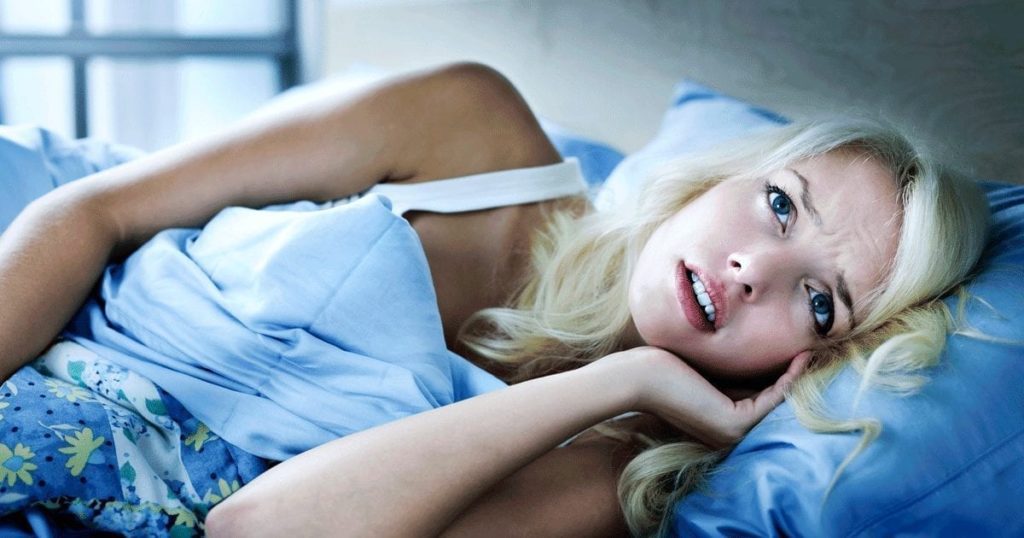In recent years, researchers and non-scientists alike have become interested in the medical benefits of cannabidiol (CBD). Some people use CBD to help them sleep better at night. However, experts are still unsure if and how CBD products affect sleep.
CBD is one of between 80 and 100 known cannabinoids, or compounds derived from the cannabis plant. It’s been shown to have anti-inflammatory and pain-relieving properties. Some evidence suggests that CBD might also be useful as an antioxidant, an antipsychotic, and to prevent nausea and vomiting.
Up to two-thirds of the adult population struggles with insomnia, so it’s no surprise that people are starting to explore CBD for sleep difficulties. Researchers are also investigating CBD for other sleep disorders like obstructive sleep apnea (OSA). However, current evidence linking CBD to better sleep is scarce, and more research is needed to determine if CBD is an effective remedy for insomnia and other sleep disorders.
Key Takeaways
- Cannabidiol, or CBD, is a compound from cannabis that may have sleep-related benefits.
- CBD might help with sleep disorders, mood disorders, and managing pain.
- Although CBD is generally considered safe, more research is needed into its long-term health effects.
- Consult a healthcare professional before using CBD for sleep to ensure safety and appropriate dosing.
What Is CBD?
CBD is one of two main active compounds that come from the cannabis plant. In general, CBD products contain little to no tetrahydrocannabinol (THC), the chemical responsible for the “high” that cannabis produces. Unlike THC, CBD does not cause intoxication or alter a person’s mental state.
CBD products are increasingly popular and widely available in a variety of forms, including:
- Oil
- Oral sprays
- Vape liquid
- Liquid suspensions
- Pills or capsules
- Powder
- Edible products, including gummies and teas
- Topical creams, gels, ointments, and cosmetics
- Smokable products
Experts still have many questions about the benefits and risks associated with CBD use and its safety, including its use for sleep.
Is CBD Approved by the FDA?
Currently, one CBD product holds FDA approval, and the FDA has also approved three drugs that contain synthetic cannabinoids.
- Epidiolex: This CBD product is a prescription drug that is used to treat children with Lennox-Gastaut syndrome and Dravet syndrome, two serious seizure disorders.
- Cesamet: Made from a synthetic cannabinoid called nabilone, Cesamet helps control nausea and vomiting and is used most often by cancer patients undergoing chemotherapy.
- Marinol and Syndros: Both products are made from another synthetic cannabinoid called dronabinol. Dronabinol helps curb nausea and vomiting in people undergoing chemotherapy and treats loss of appetite in people with human immunodeficiency virus (HIV).
While there are a variety of other CBD products on the market, they haven’t yet been FDA approved. While government research into CBD and cannabis products is ongoing, more research is needed to fully understand CBD’s effects on the body. The FDA is working to determine definitively if CBD is a safe and effective treatment option.
How CBD Affects Sleep and Health Conditions
There have been few large-scale studies looking at the use of CBD for sleep disorders and other health conditions, but there’s evidence that CBD products can help improve sleep.
CBD affects a network of receptors throughout the body that control functions such as pain, memory, and metabolism called the endocannabinoid system. The endocannabinoid system likely plays a role in regulating sleep-related chemicals like serotonin and the sleep-wake cycle as well.

The sleep-wake cycle is a type of circadian rhythm, or 24-hour biological rhythm that controls bodily functions such as body temperature and metabolism. The sleep-wake cycle is what tells the body to feel sleepy at nighttime and wake up in the morning.
Experts are still unsure as to exactly how CBD impacts sleep. However, CBD has drawn an increasing amount of scientific interest as a way to manage certain sleep disorders and health conditions that may affect sleep.
Sleep Disorders
A few small studies have examined CBD as a potential treatment for sleep disorders.
- Insomnia: Although sleepiness is a known CBD side effect, results from studies using CBD to treat insomnia have been mixed. Animal studies indicate that its efficacy may depend on the dose. CBD at a variety of doses leads to more sleep, but those that consume lower doses may fall asleep faster.
- Sleep apnea: A few small studies have seen positive results when using cannabinoids to treat sleep apnea. Cannabinoids appear to prevent pauses in breathing during sleep in animal studies. However, studies in people are still in the earliest stages.
- Narcolepsy: Research on the connection between cannabinoids and narcolepsy is still in the earliest stages. While some people find that CBD helps them sleep, others note that it keeps them awake.
Because few studies have looked at CBD in treating sleep problems, more research is needed to understand if CBD may be an effective treatment for sleep disorders.
Anxiety
More than 60% of people who take CBD use it to treat their anxiety. Although evidence is still limited, research indicates that CBD may have anti-anxiety properties.
CBD might have a positive impact on certain cannabinoid receptors that affect anxiety. More research is needed to determine CBD’s long-term effects on anxiety disorder, and what dosage is most appropriate. Nonetheless, a number of studies indicate that CBD could potentially be an effective treatment for the condition.
For some people, less anxiety might mean better sleep. Anxiety disorders can make it difficult to fall asleep, and people with insomnia can develop anxiety about sleep itself. It’s unclear if CBD helps with both anxiety and sleep, or if people simply sleep better when they are less anxious.
PTSD
People with post-traumatic stress disorder (PTSD) often experience sleep problems, including nightmares and insomnia. These difficulties can lead to sleep deprivation, which may make PTSD symptoms worse.
CBD might be useful in preventing nightmares due to PTSD. Cannabinoids reduce activity in the amygdala, a part of the brain that controls panic reactions and paranoia. A few studies of individuals with PTSD have found that synthetic cannabinoids reduced nightmares and helped with insomnia.
Pain
Cannabis has been used to treat pain since medieval times. CBD has anti-inflammatory and pain relief properties, and might be beneficial for some symptoms of chronic pain.
While numerous studies have explored cannabinoids as a potential painkiller, the results have often been unreliable or insignificant.
How Much CBD Should You Take to Improve Sleep?
CBD seems to be dosage dependent when it comes to sleep, meaning that certain dosages may help users fall asleep faster, while others might prevent sleep. Until experts determine the best dosage of CBD for sleep, the answer may depend on your own tolerance.
Doctors who use CBD to treat epilepsy generally start with the lowest possible dose and gradually increase the amount as needed. If you plan to take CBD, begin by taking a small amount and see how you tolerate it. Once you’re sure that your body can handle it, you may consider increasing your dose to the recommended amount.
It’s important to let your health care provider know if you want to start taking CBD for sleep, especially if you are already taking other supplements or prescription medications. A doctor can tell you if anything you are taking could potentially interact with CBD, or if CBD could impact a health condition you already have.
CBD Safety and Side Effects
Taking CBD for sleep is generally considered safe, though experts caution more information is needed about how CBD affects health long-term.
Common side effects that accompany CBD use tend to be mild and can include dry mouth, diarrhea, sleepiness, loss of appetite, and low blood pressure.
CBD is broken down in the liver, as is the case for any drug or supplement you might take. For that reason, research is ongoing to look at how CBD might impact the liver. Some studies have shown impact to the liver in people taking the anti-seizure drug, Epidiolex, but more research is needed.
Because CBD hasn’t been studied extensively, there’s quite a bit about the cannabinoid that’s unknown.
- Drug interactions: It’s unclear whether it’s safe to combine over-the-counter medications with CBD products so it’s always a good idea to mention to your doctor that you plan to try CBD.
- Special populations: Researchers are currently exploring how the substance affects special populations, including older people, children, and pregnant people.
- Misleading claims: Some products on the market make false or misleading medical claims, stating that they sell the best CBD for sleep or other specific conditions.
- Limited regulation: Since the government does not regulate CBD production, it’s hard to say whether a particular product is effective or safe. Some may potentially be contaminated with unhealthy substances like pesticides or heavy metals.
Some researchers do assert that while much is still not known about CBD, it may be safer than other drugs used for treating sleep and other health conditions because there have been no reports of overdose or other major issues.
If you are interested in using CBD for sleep, talk to your doctor before doing so. They can help you weigh the pros and cons of taking CBD, taking your medical history into consideration.
Frequently Asked Questions About CBD for Sleep
Experts haven’t defined an optimal time to take CBD for sleep. One study offered people CBD capsules after dinner, but it’s unclear if that was the ideal time. You might have to experiment with different times to find the one that works best for you.
A few studies have found that 300 to 600 milligrams of CBD improve anxiety and cause sleepiness. The FDA is currently investigating which dosages are safe to use long term.
Researchers are not sure if one form of CBD is better than another. Because CBD products are not regulated, it’s difficult to say which products contain the amount of cannabinoids they claim to. This makes it harder to determine which form of CBD is best, as product quality often varies.
Although research on CBD vaping is limited, research into nicotine vapes or e-cigs shows that they contain a harmful aerosol and the batteries can catch fire or explode leading to accidental injuries. Talk with your doctor before trying CBD vapes.
References
Ask the Sleep Doctor
Have questions about sleep? Submit them here! We use your questions to help us decide topics for future articles, videos, and newsletters. We try to answer as many questions as possible. You can also send us an email. Please note, we cannot provide specific medical advice, and always recommend you contact your doctor for any medical matters.







